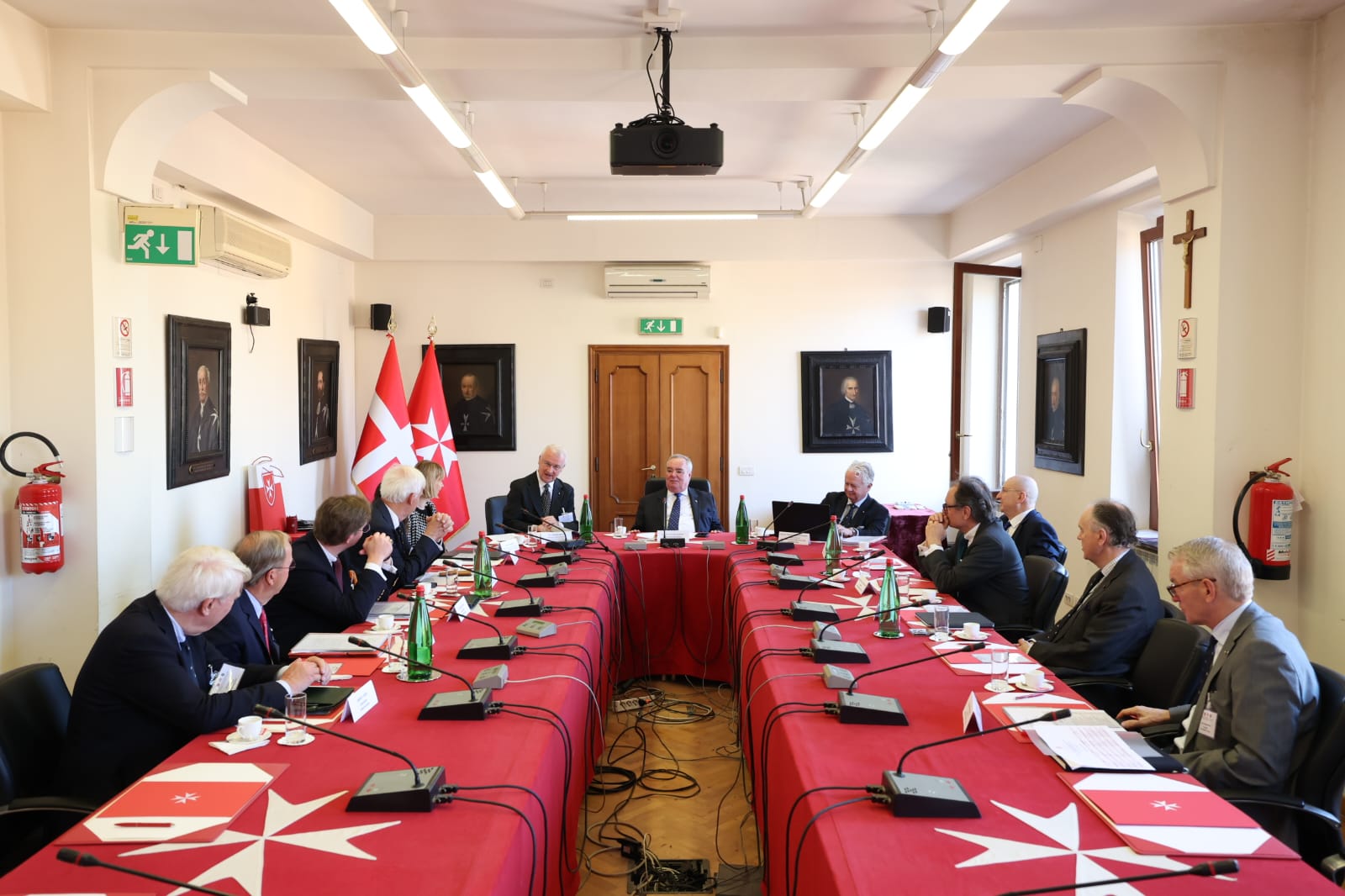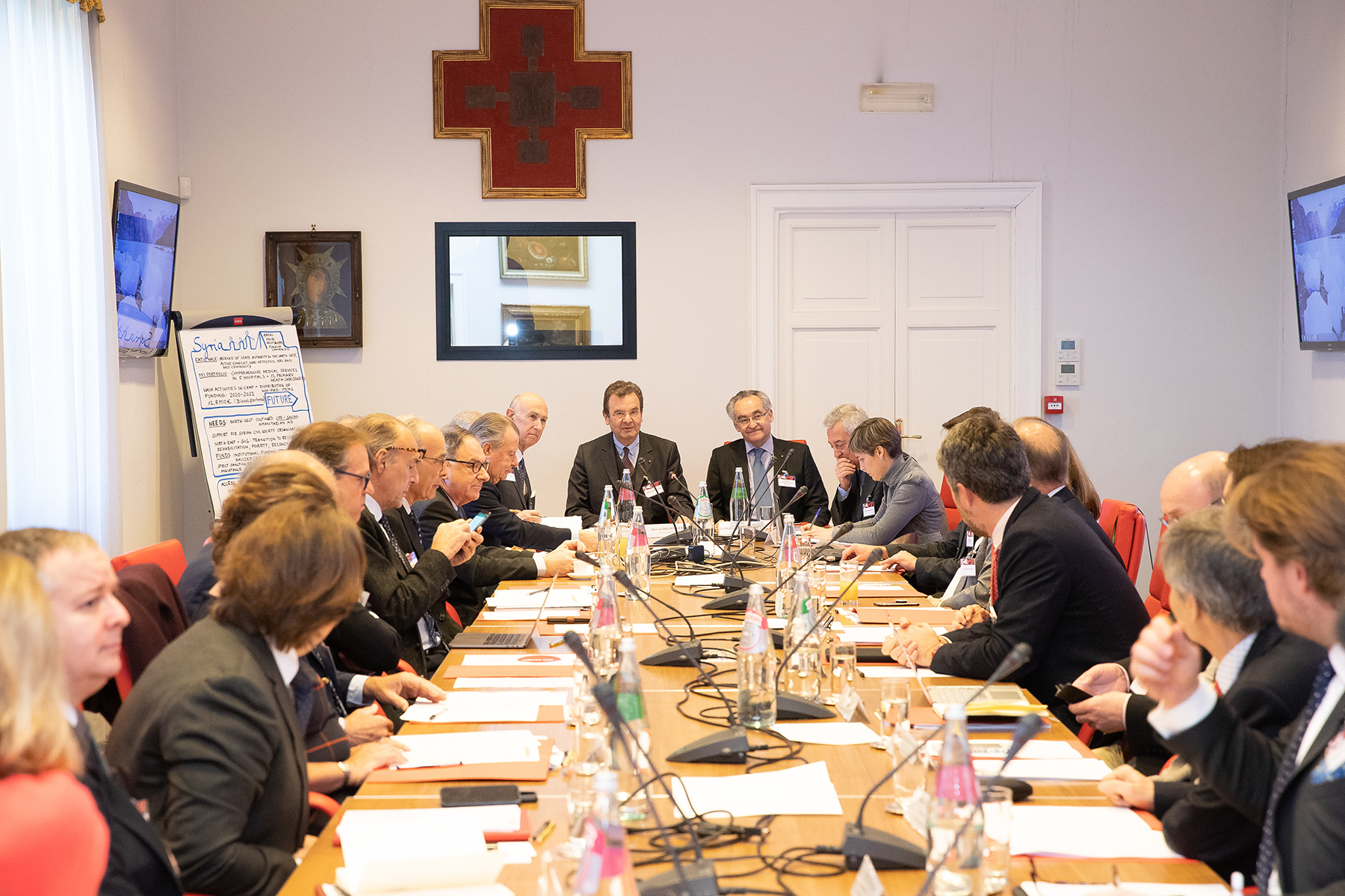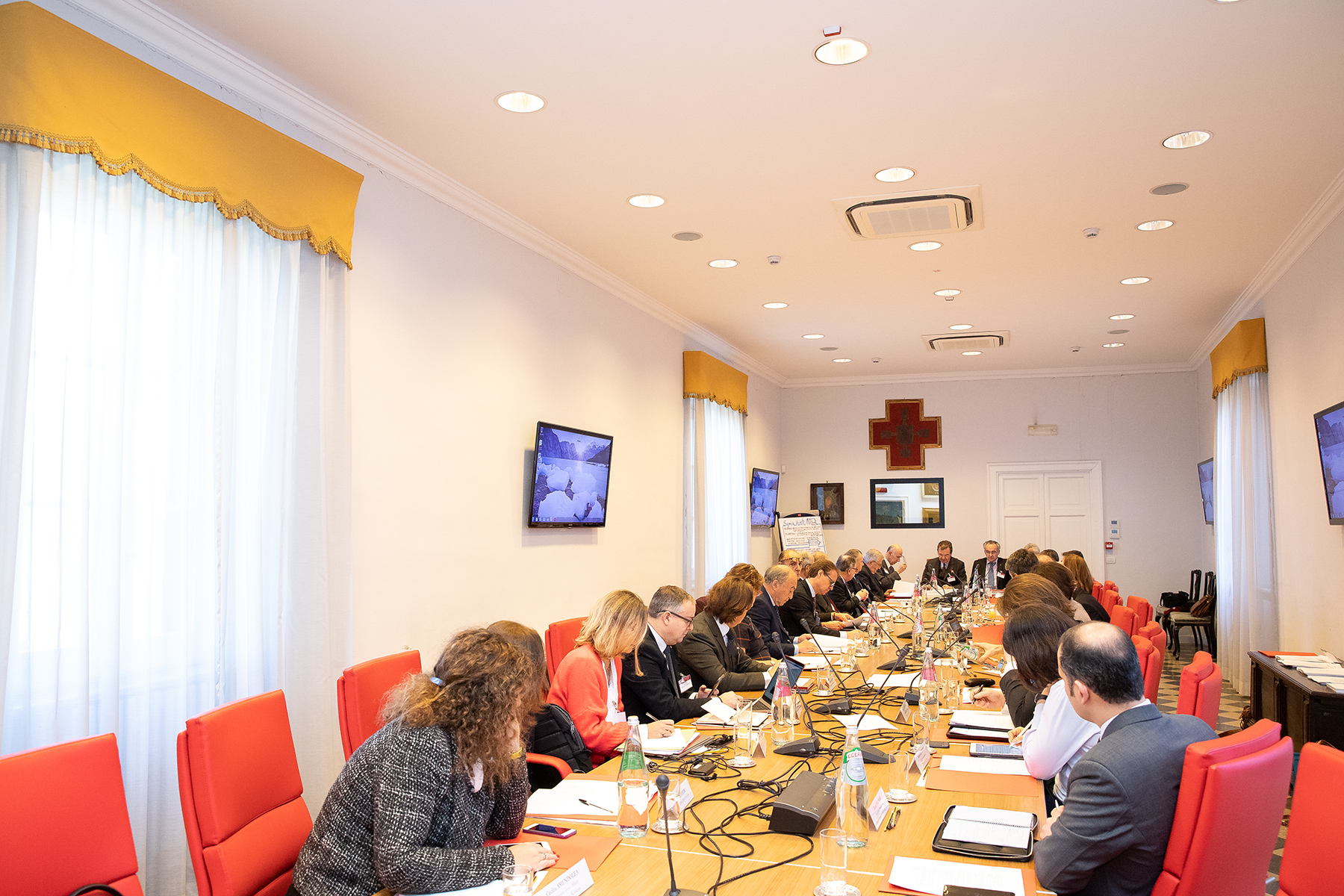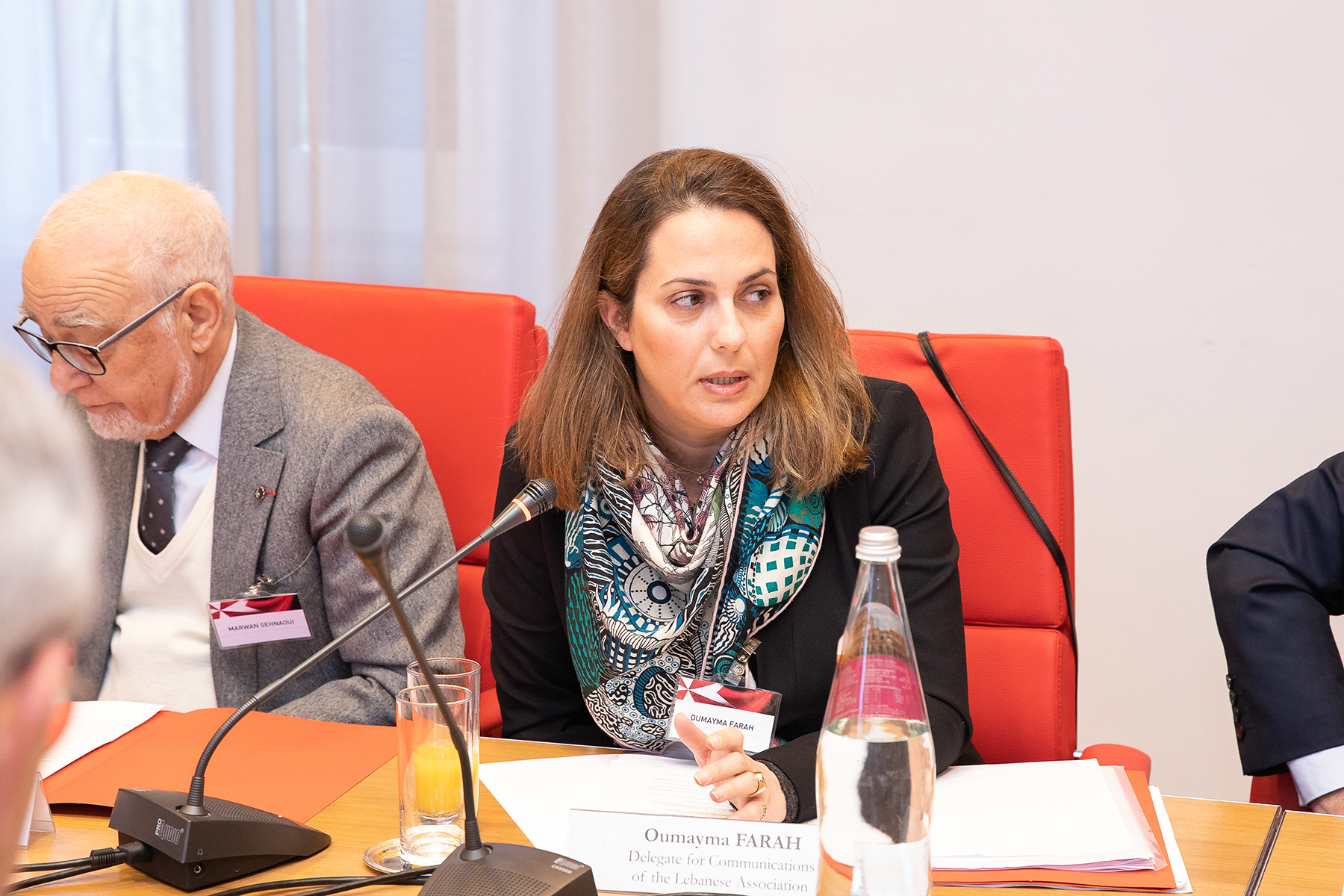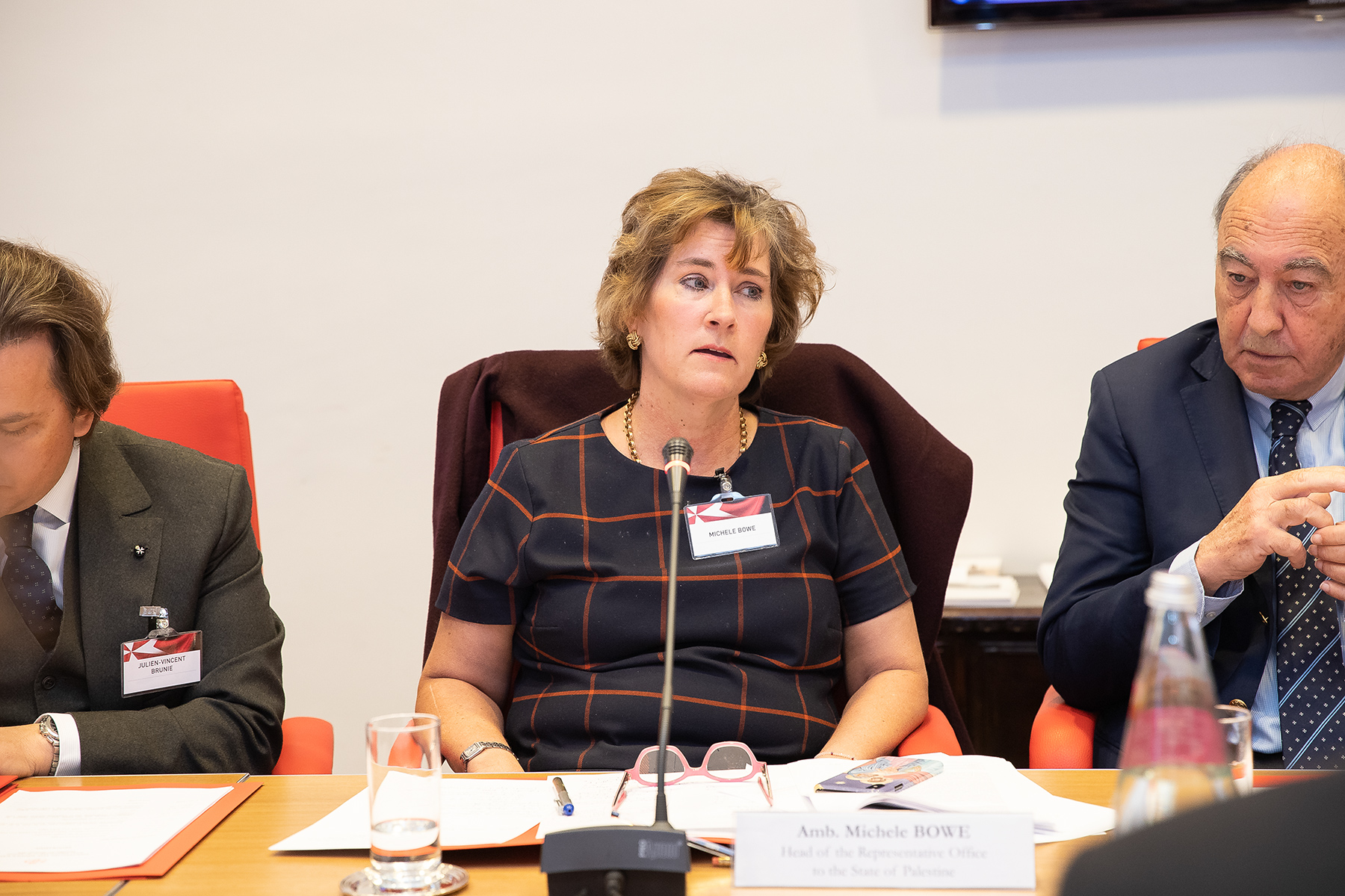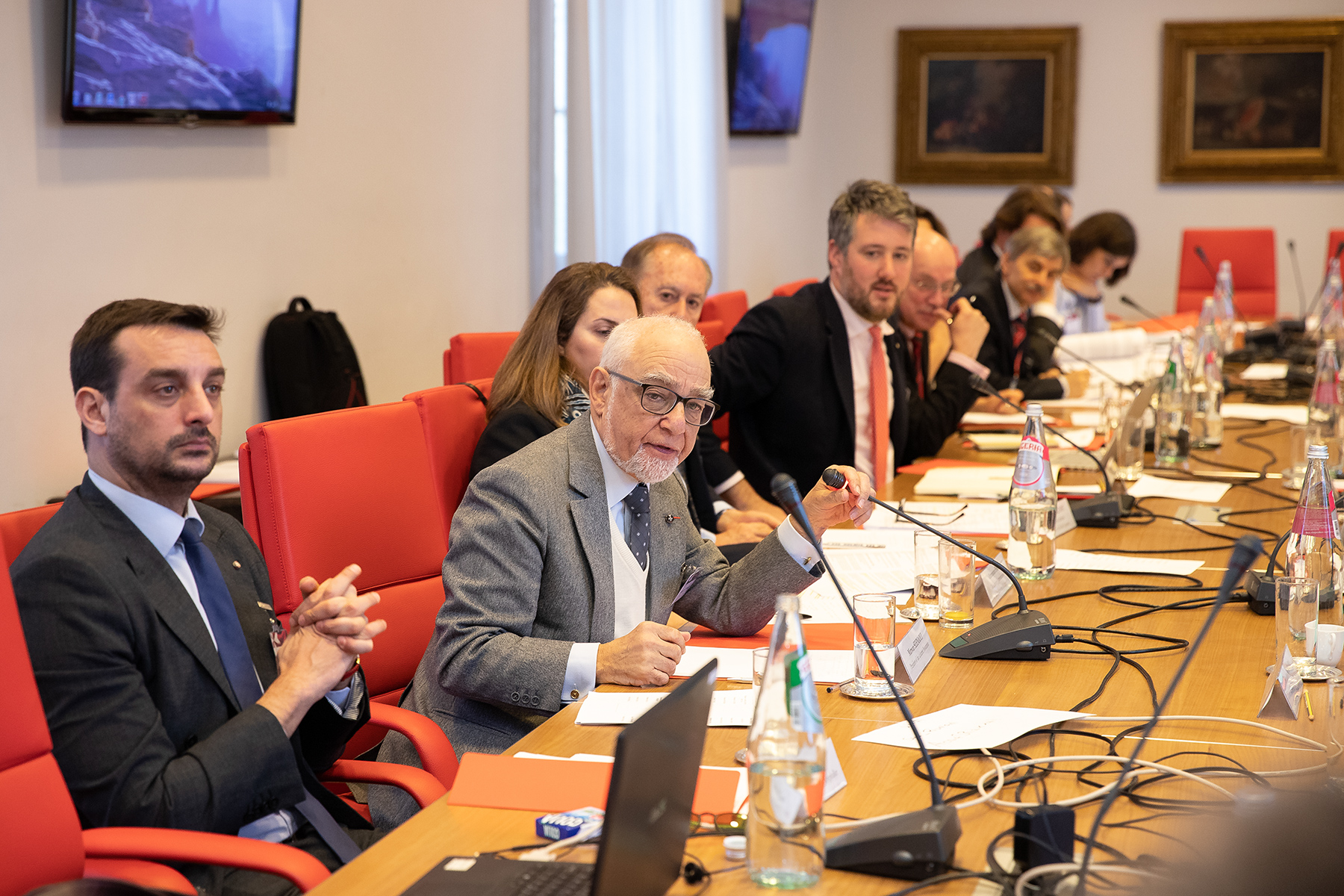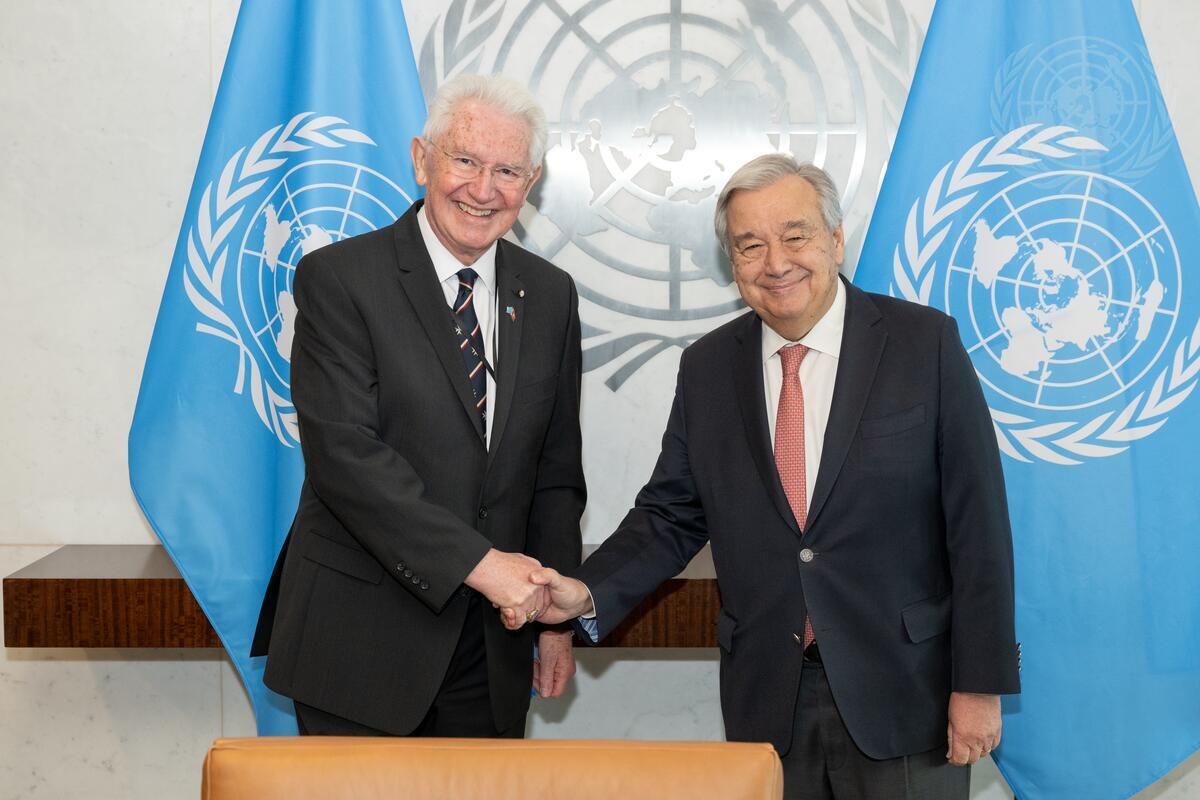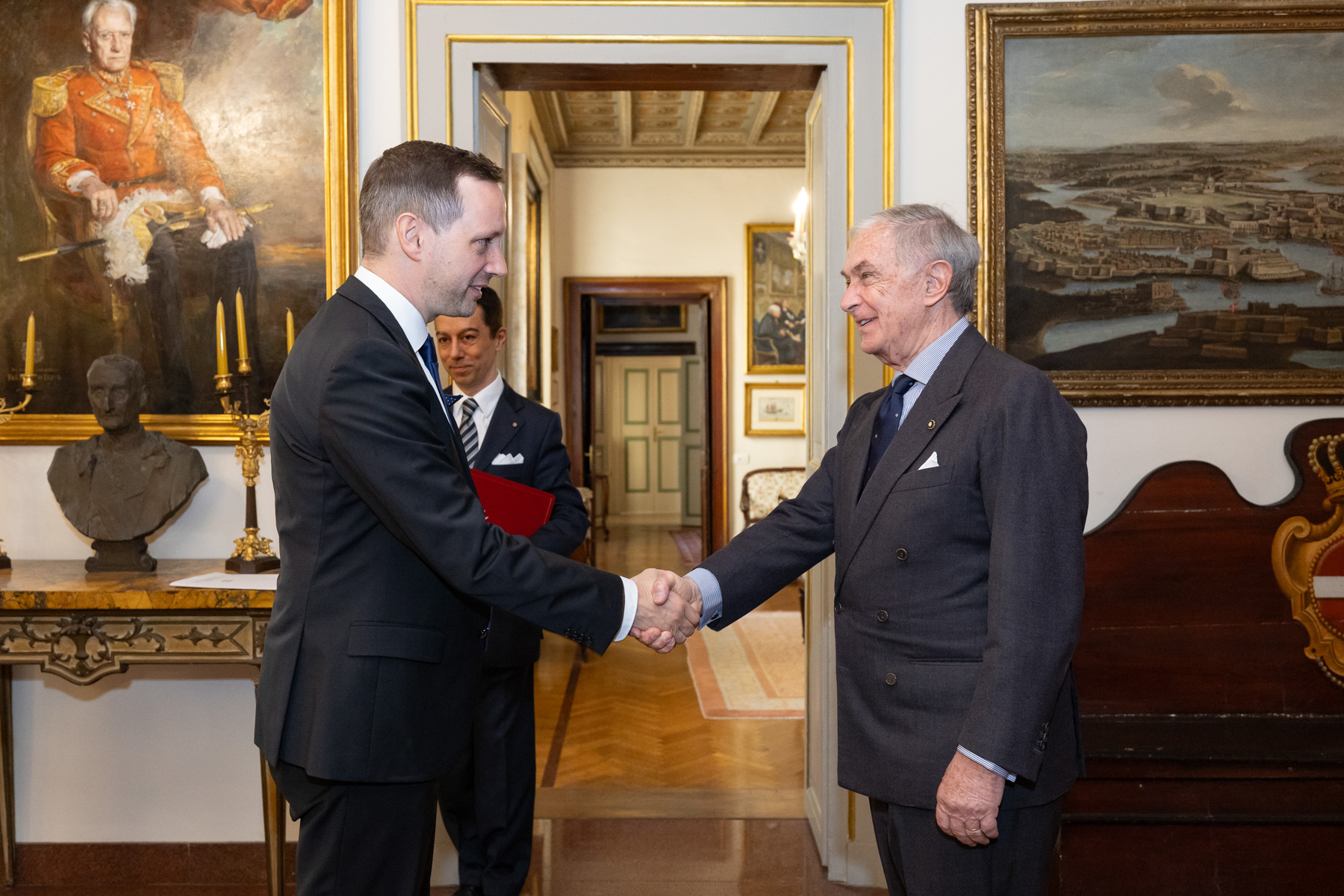With the ongoing war in Syria, now entering its 9th consecutive year, and its repercussions on the neighboring countries, with the political unrest in Lebanon, which has led the country- home to 18 different confessions – into a protracted social and economic state of emergency , and with the growing tensions in Libya, the Order of Malta organized, on 27 February, a working meeting bringing together region Order’s ambassadors, association’s presidents as well as heads of Malteser International and Ordre de Malte France, to see how efforts to bring relief to the communities affected can be strengthened and increased.
Senior figures of the Order of Malta operating in many different states affected by the ongoing unrest, such as Lebanon, Jordan, and Palestine, as well the Order’s Ambassador to the EU, policy makers, and key country field specialists, such as Iraq, all participated in the discussion. Malteser International, the Order of Malta’s worldwide relief organization, contributed greatly by submitting a policy document with an overview of the current scenario in the area. The meeting was also attended by the Hungarian Order of Malta who has been actively supporting humanitarian projects in Syria.
The Grand Hospitaller, Dominique de La Rochefoucauld-Montbel, called for a joint effort to further strengthen the network of the Order stressing how tools such as cooperation agreements between states and institutions are vital in bringing immediate relief to those in need.
Focus of the one day discussion, which took place in Rome in the Magistral Villa- one of the government seats of the Order- was the Syrian dire situation: to date, more than half a million Syrians have died during the fighting and bombing, and millions of people have fled the country: more than 12 million people have been displaced and some 5.6 million of them live as refugees mainly in neighboring countries and worldwide. In the Idlib region alone, more than two million people are dependent on aid.
From a wider angle, the growing population in the Middle East region particularly in large urban cities, is putting a huge strain on access to primary resources such as water and food security, especially in countries that have been vastly disrupted by years of wars and violence like Iraq, said a representative of Malteser International: the agency deployed emergency and medical staff in the region shortly after the onset of the war in Syria in 2011.
Currently Malteser International runs a number of projects in Iraq, Turkey and Lebanon, and supports rescue and medical activities in Syria. The Lebanese association has, over the last few years, intensified its socio-medical assistance network, bringing to 30 its aid programmes, including two new mobile medical units in the north and in the south area to bring relief to needy communities.
During the meeting, attended by over 30 representatives of the Order of Malta, emphasis was put on the need to strengthen the protection of religious communities and to try and halt the hemorrhage of Christians from the Middle East, strengthening dialogue with the Islamic and Arab world.
“We have great challenges to face: first of all to see what the Order of Malta can do on the ground to try to help the communities in the violence-ridden regions, especially the religious communities most threatened by discrimination and persecution; a second point is to examine, country by country, what the Order, and in particular its operational branches, like Malteser International and Ordre de Malte France, can do to address effectively the dramatic problems the Middle East is facing” said the Grand Chancellor, Albrecht Boeselager, in his speech.





